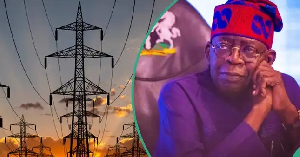The federal government has announced that it is formulating a targeted electricity subsidy framework designed to protect low-income and vulnerable households, while safeguarding the long-term commercial viability of Nigeria’s power sector.
The Minister of Power, Chief Adebayo Adelabu, disclosed this during the Nigeria Energy Forum 2025 held in Lagos on Tuesday, October 28.
He stated that the government will also introduce a minimum capital adequacy requirement for electricity distribution companies (DisCos) as part of their license renewal process.
The measure, he explained, is intended to improve liquidity, strengthen corporate governance, and enhance service delivery across the electricity value chain.
Providing updates on the Presidential Power Initiative (PPI), the Minister noted that the ongoing national programme is aimed at accelerating grid expansion and modernisation.
According to him, Phase Zero of the initiative has already added over 700 megawatts (MW) to Nigeria’s transmission capacity, while Phase One, projected to deliver an additional 7,000MW, is underway through partnerships with Siemens Energy, CMEC, Elswedy Electric, and Power China.
He also confirmed the successful integration of the 700MW Zungeru Hydropower Plant into the national grid, a development that increased average generation capacity to 5,300MW in 2024, compared with 4,200MW recorded in 2023.
FG initiates programmes to improve power
Addressing Nigeria’s metering challenges, the Minister disclosed that the government has secured N700 billion from the Federation Account Allocation Committee (FAAC) under the Presidential Metering Initiative (PMI).
The funds, he said, will be used to deploy 1.1 million meters by the end of 2025, and two million meters annually over the subsequent five years.
This initiative complements the 3.2 million meters being financed under the World Bank’s Distribution Sector Recovery Programme (DISREP).
Adelabu also outlined plans to mobilise over $2 billion in financing from key development partners to accelerate renewable energy deployment and expand electricity access in rural and underserved communities.
The funding includes the $750 million World Bank DARES programme, the $500 million NSIA RIPLE platform, and the $190 million JICA facility. Adelabu emphasised that Nigeria’s power industry is now more open and investment-ready than ever before.
He urged private developers and financiers to take advantage of emerging opportunities, particularly in transmission infrastructure and renewable energy.
Business News of Wednesday, 29 October 2025
Source: www.legit.ng
FG to develop electricity subsidy plan to protect poor Nigerians from rising tariffs
Entertainment












